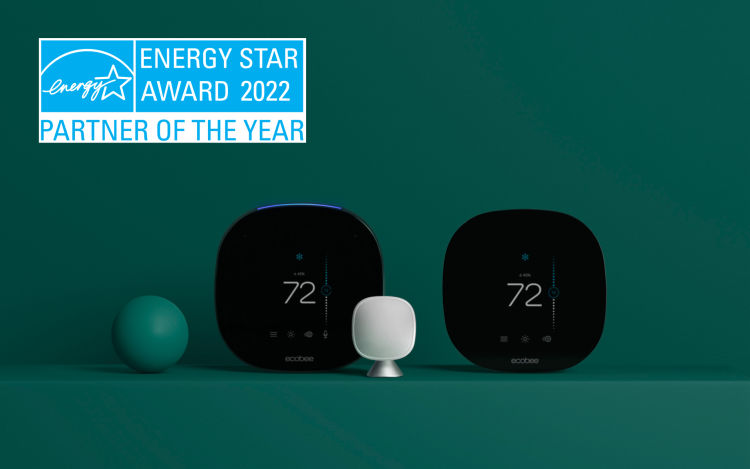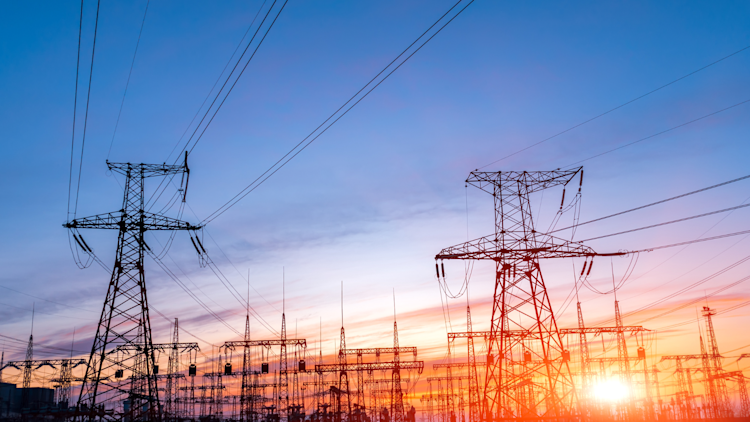How ENERGY STAR Helps Families Save Energy and Support the Environment
Save more on energy bills and support a cleaner environment with ENERGY STAR certified products.
by ecobee on 05/09/2022 in Better Planet
5 min read

ecobee is honoured to be named an ENERGY STAR® Partner of the Year for the second year in a row. To mark the occasion, we're sharing a few examples of how the ENERGY STAR certification can help you save more on energy costs while supporting a healthier planet.
ENERGY STAR’s history and environmental impact to date.
ENERGY STAR® is the U.S Environmental Protection Agency (EPA) program for energy-efficient products, homes, and buildings. Products that earn the ENERGY STAR label are independently certified to meet strict energy efficiency specifications set by the EPA. The ENERGY STAR website is a trusted source for information that consumers and businesses can rely on for energy choices that count.
Since the program launched in 1992, the ENERGY STAR label has become a highly recognized symbol for energy efficiency solutions that deliver cost savings while protecting the climate.
Over the lifetime of the program, ENERGY STAR and its partners have helped families and businesses:
- Save 5 trillion kilowatt-hours of electricity,
- Avoid more than $500 billion in energy costs, and
- Achieve 4 billion metric tons of greenhouse gas reductions.

ENERGY STAR-certified ecobee smart thermostats can save homeowners up to 26%* annually in heating and cooling costs.

How ENERGY STAR products are supporting a healthier environment.
In addition to bill savings, the use of ENERGY STAR certified products also helps individual households and businesses easily reduce their carbon footprint.
For example, an average ENERGY STAR certified dishwasher can save you an average 3,870 gallons of water — the equivalent of nearly 30,000 water bottles — over its lifetime. Several new features are built into the new models, like soil sensors, improved water filtration, and more efficient jets to reduce energy and water consumption and improve performance. Similarly, ENERGY STAR certified laundry machines use 33% less water than regular clothes washers. You can further reduce your energy consumption by switching the temperature setting to warm instead of hot, or by washing your clothes in cold water.
Reducing our water consumption on a daily basis goes a long way in helping us protect our lakes, streams, and oceans – which is critical for protecting the health of our planet.
There are many other products that can help us reduce our carbon emissions and cut down our energy consumption. Ductless heat pumps have been growing in popularity, partly due to their ability to transfer heat instead of generating it. ENERGY STAR certified heat pumps use 60% less energy than standard home electric resistance-based heating systems.
Collectively, ENERGY STAR certified products have reduced greenhouse gas emissions by 4 billion metric tons. ecobee smart thermostats alone have delivered over 25 TWh of energy savings, which is the equivalent of taking all the homes in Los Angeles off the grid for one year. With features like Community Energy Savings, ecobee smart thermostats can also help strengthen the electricity grid during periods of high demand by making slight temperature adjustments to your thermostat when demand peaks.
ecobee has delivered over 25 TWh of energy savings, which is the equivalent of taking all the homes in Los Angeles off the grid for one year.

What it means to be an ENERGY STAR Partner of the Year.
Receiving the Partner of the Year award for the second year in a row allows us to deliver added trust and peace of mind to ecobee SmartOwners and our industry partners. The certification of ecobee products and Partner of the Year award signify the performance reliability of ecobee smart thermostats, as well as our deeply ingrained partnership with ENERGY STAR.
For businesses and homeowners alike, choosing products and appliances that have the ENERGY STAR certification or partnership badge can provide you with deeper bill savings and more opportunities to support a healthier planet.
* Compared to a hold of 72°F/22°C.
Did you enjoy this article?
Thanks for letting us know!






